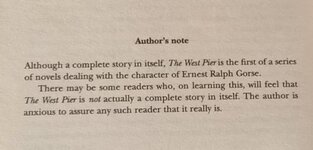Hi all!
Finally reading Save the Cat! Writes A Novel and it is life-changing. At least, it's book-changing.
Good news: I have the beats, either planned or written.
Unsurprising news: Many of them are in the wrong place. No worries. I am committed to a month of Sundays of editing.
But I have questions that I'm hoping some of you geniuses can answer.

Finally reading Save the Cat! Writes A Novel and it is life-changing. At least, it's book-changing.
Good news: I have the beats, either planned or written.
Unsurprising news: Many of them are in the wrong place. No worries. I am committed to a month of Sundays of editing.
But I have questions that I'm hoping some of you geniuses can answer.
- For a trilogy, do I spread the beat sheet over all three books?
- Pedra leaving Karatus with Mika is breaking into Act 2. If people were to say yes to the first question, then my follow-up question is: Should I end the first book at the Debate or Breaking Into Act 2? My gut says the second because it gives the reader a keen sense of what is to come in the trilogy.

